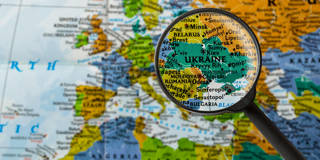OnPoint Subscriber Exclusive
The Big Picture brings together a range of PS commentaries to give readers a comprehensive understanding of topics in the news – and the deeper issues driving the news. The Big Question features concise contributor analysis and predictions on timely topics.

Putin’s Poker
Amid mounting tensions, the United States and its NATO allies hope that further negotiations will prevent a Russian invasion of Ukraine, which would almost certainly reshape Europe’s post-Cold War order. But while diplomacy may yet defuse the crisis, Russian President Vladimir Putin’s brinkmanship has already succeeded in calling into question Western unity and resolve.
In this Big Picture, Nina L. Khrushcheva of The New School argues that the cycle of crises in former Soviet states will continue until the West starts taking the Kremlin’s security concerns seriously. Robert Skidelsky goes further, proposing that Russia renounce any territorial claims on Ukraine and Belarus in exchange for a Western guarantee that these countries would be barred from joining NATO.
But former German Foreign Minister Joschka Fischer argues that the crisis over Ukraine reflects Putin’s desire to restore his country’s empire, and raises the alarm about the threat the Kremlin poses to the European Union’s fundamental principles.
Meanwhile, Charles Tannock, a former member of the European Parliament, outlines a plausible scenario for a Russian incursion into Ukraine – and a plausible strategy for making it prohibitively risky for Putin. But, so far, note Hilary Appel and Jennifer Taw of Claremont McKenna College, Russia’s president has made real gains by exposing the West’s disarray and the weakness of its commitment to Ukraine.
The US and Germany are largely to blame, says Sławomir Sierakowski of the German Council on Foreign Relations, criticizing both countries for signaling to the Kremlin – in a step he compares to the 1938 Munich Agreement – that a small-scale invasion of Ukraine would mean only limited Western sanctions. But Princeton University’s Harold James thinks that, if the right lessons are drawn from the appeasement of Hitler, another violent conflict need not be inevitable.
And despite disagreement among European countries, Javier Solana, a former EU high representative for foreign affairs and security policy, and former secretary-general of NATO, notes that no resolution to the Russia-Ukraine crisis will endure unless the EU plays a central role in crafting it.